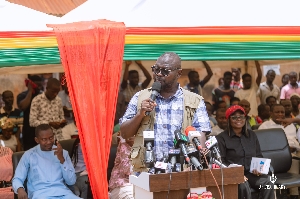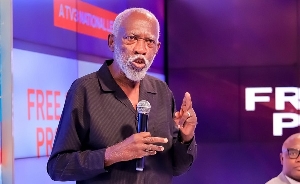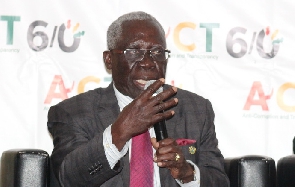- Can These Challenges Be Overcome?
Streamlining Port processes to guarantee holistic maritime best practices has over the years become a formidable task for many successive administrators in this cherished industry.
Indeed, Ghana Ports & Harbours Authority (GPHA) resolve to install Container management system purposely to enhance identification of stacked containers as well as develop Inland clearance depots with additional provision of cargo scanners to facilitate cargo delivery as pertained in most developed polities is most prudent. This, of course is likely to stimulate some level of quantum leap by positively improving the overall Port processes and performances, although it’s been a wee bit delayed considering all the jockeying associated with contemporary global trade competitiveness.
IMPEDING FACTORS
Regrettably, countless of challenges continue to overwhelm Ghana’s maritime trade, eccentrically in this highly technologically diffusion age.
With the benefit of hindsight, the introduction of Ghana customs management systems/Ghana community network (GCMS/GCNET) which is a technologically driven system was expected to radically revolutionize the entire documentation processes and procedures of CEPS and port operations enabling the country to stay ahead of global competition. There was the perception that much human interface and massive utilization of paper work bedeviling the system were virtually to be truncated. In addition to this, a single document was projected to be utilized to terminate the entire process of cargo delivery. Today, it is vice versa. The great expectation that was anticipated seems to be short-lived. We are now witnessed to an unprecedented obsession of sheer paper work with its associated human contact at its highest pinnacle. Such unfortunate phenomenon, if not dealt with could negatively diminish the predictability and visibility of our ports to foreign investments.
Conversely, let us critically analyze the following assertion. “A pregnant woman visited her doctor to ascertain the health condition of the baby in her womb. After normal ultrasound scan and the usual clinical ‘exercises’ which the woman was subjected through, she was there and then, entreated by the Medical Doctor to lie on a stretcher. Subsequently, she was stripped and the bulging tummy was split open with the doctor’s knife. The baby was then lifted from the mother’s womb, examined and ultimately pushed back.”
The above paradoxical statement aptly accentuates a modus operandi confronting the freight forwarder/ importer in cargo clearance within the framework of the entire customs and port operations.
Essentially, the salient issue in contention is that, containerized cargo that undergoes the scanning process is then subjected through a process of breaking the originality of the security seal of the container. Periodically, these containers are devanned absolutely and, subsequently, subjected through rigorously physical examination under the full directives and glaring supervision of customs officers and representatives of diverse stakeholder organizations, although the scanning images captured may be perfect and devoid of acute abnormalities.
Indeed, under such circumstances, substantial quantity of the stowage, which typically could be so susceptible, are also exposed to the vagaries of the weather. When this happens, the probability that the consignment could be contaminated or damaged at a huge irrecoverable cost to the consignee could not be ruled out, more specifically, if the shipment encompasses pharmaceutical products, victuals, chemicals or fragility of components.
ADDITIONAL CHALLENGES
Yet again, let’s take a hasty observation of GCNET completed validated entry declaration. Once a document had been completed at a Forwarder’s ‘front end’, submitted and validated via the GCNET/GCMS system as it is now, it stands to reason that all inputs made based on acquired FCVR are absolved from potential flaws without necessarily going through compliance (vetting). Today the story is different. Hard copies of customs declaration including support documents, (which are mostly voluminous) are subsequently submitted to Customs compliance officers for what I may term “re-validation”, a situation that has invariably incurred resentment from Importers/ Freight forwarders as well as the interrelated business operators who by the strategic nature of their businesses relentlessly contribute diversely to improve upon the country’s socio-economic configuration.
On a more rationalistic approach, it is again expected that imports that have satisfactorily undergone physical examination require exiting the port facility without being subjected to long laborious queues at the exit point for further checks. This is so imperative due to the fact that the very cargo has appropriately been examined by these same customs personnel along with the various authorized representatives. The irrelevant repetitive examinations obviously create needless stampeding by trucks, as well as personnel wanting to exit the inner perimeter of the freight station, predominantly at rush hours.
In contemporary times, Ghana Port and Harbours Authority (GPHA) and the various operating shipping companies have developed extraordinary penchant for physical receipt of money as medium of payment against their estimated charges. Now, wouldn’t it be possible for all payments to shipping lines, GPHA and the ancillary operators in connection with cargo clearance be captured on the Customs entry/declaration for one shot payment? The validation spontaneously authorizes the owner/agent to have access to the imported freight without recourse to manual ‘releases’ of cargo.
It must be emphasized that physical Delivery orders (D/O’s) for ‘release’ of shipment is therefore ultimately relegated to the background. It becomes immaterial as it is time consuming and additionally its applicability has definitely become so antiquated. Obviously, it would be recalled that some few years back, an Income tax payment was honoured outside the GCNET/GCMS platform; that is now history. It has effortlessly been captured on the customs entry/declaration. This has substantially truncated the protracted processes usually faced by prospective Agents/Importers.
Significantly, the above- enumerated empirical attestations are not the only isolated challenges in customs and port operations. The stark reality is that, these are just the’ tip of an iceberg.’ Myriad of challenges relentlessly continue to plague the Ghanaian system of customs and port operations. E.g., the inadequacy of machinery equipment to facilitate the delivery process; building up of long queues of vehicular trucks days on end before and after scanning process; the incessant bureaucratic propensities occasioning acute congestion mostly at Customs preventive end of the process; the relative narrow road network at the precinct of the Tema port, lack of well-defined parking lots for vehicular trucks; the irrelevant old system of second ‘release’ of de-consolidated stowage meant for customs clearance, etc. are some of the conspicuous manifestations that all is not well with regards to the operational dynamics of customs and port functionality.
Indisputably, these supposedly challenges are virtually a characteristics of the supply chain process. It must be acknowledged that an ultimate upshot of the concept of supply chain therefore is the protection of the ‘chain’ from infraction. Once there is occurrence of infraction in the process, it defeats the very purpose of the principle of Just-In-Time, (JIT) which could have long term undesirable consequences on Ghana’s fragile economy.
CONCLUSION
. However, in the light of above, Customs and associated port administrators with active support of Chattered Inst. of Logistics & Transport-Ghana (CILT) are not only expected to think-outside-the-box but to violently ‘stir’ the ‘box’ for optimal outcomes to subjugate the oppressive procedures coupled with unwarranted administrative flaws likely to dissipate the country’s effort to attain greater market dominance within the sub-region and beyond. Such exploits could improve the maritime features of our ports to enable it really live up to the truism of ‘the gateway to west Africa’.
Joe Effah-Nkyi, ( MILT).
CEO, Uni-states shipping ag. ltd.
Box ce 12281, Tema
E-mail; unistates2000@yahoo.com Tel; +233244250922












